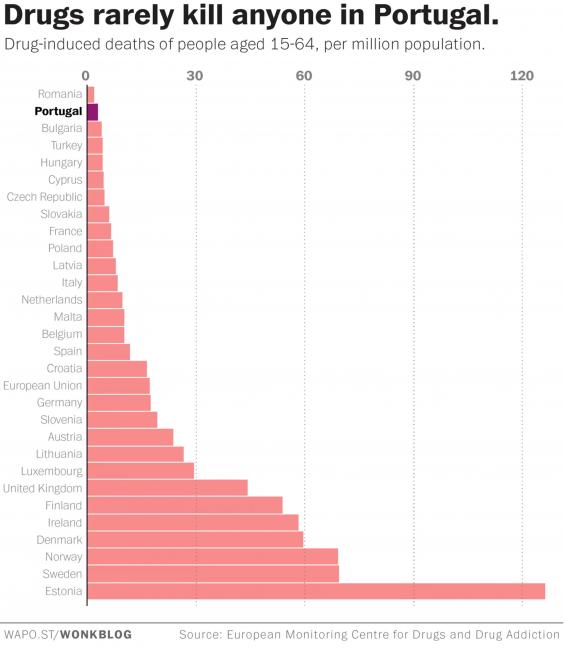In Lisbon, for example, the local drug addiction commission is housed on the first floor of an unremarkable office building. The idea is that no one should feel uncomfortable about being seen here. A 19-year-old in a white polo shirt waits in one room. Police caught him over the weekend with about a gram of hashish. A social worker has already questioned him for half an hour and learned that he attended vocational training at an agricultural school, lives with his parents and smokes pot now and then. This was the first time he was caught in possession of drugs.
"Social user, no risk factors present," the social worker notes.
Next, a psychologist and a lawyer speak to the young man. They want to know if he's aware of the dangers of cannabis.
"Yeah, yeah, from school," he says. "We had a class on prevention."
As long as he isn't caught again within the next three months, his case will be closed. "We won't inform anyone that you were here and this won't go on your record," the lawyer explains. "But if it happens a second time, there are serious consequences."
But later, asked to explain these consequences in more detail, nothing comes to her mind that sounds particularly serious. A couple days of community service, perhaps. The commission can also impose fines, but the lawyer says it doesn't like to do so for teenagers. The fines are likewise not intended for people the commission determines to be addicts -- they're already paying to maintain their habit. "Our most important duty is to invite people to participate in rehab," she explains. Lisbon police send around 1,500 people to the commission each year, which averages out to less than five a day. Seventy percent of these cases concern marijuana. Those who fail to turn up receive a couple of reminders, but coercion is not an intended part of this system.
Warnings, reminders and invitations to rehab -- it seems Portugal's war on drugs is a gentle one. "Humanistic and pragmatic" is how João Goulão describes the new program. It is based on decriminalization, which should not be confused with legalization. Portugal considered that path too, but ultimately decided not to take things quite that far.
When Portugal's parliament was debating the proposed Law 30/2000, representatives of right-wing parties declared that planes would start arriving in the country daily, full of people looking for an easy opportunity to pump themselves full of drugs. Our entire country will become a drug-ridden slum, these parties said. The left-wing parties in parliament held a majority, though.
Goulão sits in his office and pages through charts, tables and graphs that are just some of the great quantity of data his team has collected over the years.
The data show, among other things, that the number of adults in Portugal who have at some point taken illegal drugs is rising. At the same time, though, the number of teenagers who have at some point taken illegal drugs is falling. The number of drug addicts who have undergone rehab has also increased dramatically, while the number of drug addicts who have become infected with HIV has fallen significantly. What, though, do these numbers mean? With what exactly can they be compared? There isn't a great deal of data from before the experiment began. And, for example, the number of adults who have tried illegal drugs at some point in their lives is increasing in most other countries throughout Europe as well.


